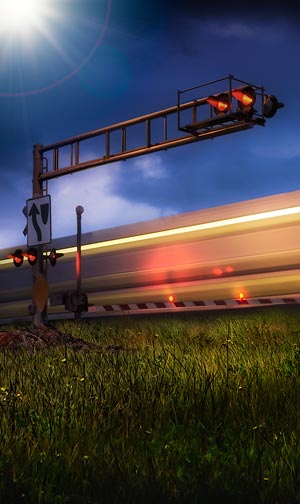Two Senators Call for Increased Federal Rail Safety Inspection Funding
(New York, New York – December 15, 2013)
Two United States senators already critical of the lack of safety procedures in effect in regard to the December 1 tragedy in which four people died and over 60 were injured when a Metropolitan Transit Authority/Metro-North Railroad passenger train headed for New York’s Grand Central Terminal derailed as the lone employee in the train’s control cab, the engineer, became briefly inattentive and took a 30 MPH speed restricted curve at 82 MPH, derailing all seven passenger cars and the locomotive near The Bronx’s Spuyten Duyvil station, held a Sunday afternoon news conference today at New York City’s Grand Central Terminal to call for federal funding for more Federal Railroad Administration safety inspectors and increased cab monitoring and surveillance.
Senators Charles Blumenthal (D-CT) and Charles Schumer (D-NY) said they would introduce efforts to add 45 additional operating safety inspectors for the Federal Railroad Administration, which the two solons argued has sufficient funds and personnel to inspect safety at only one percent of railroad practices nationwide.
Senator Schumer said that the FRA “simply doesn’t have enough resources to fully inspect our rail lines, to sufficiently prepare implementation of safety measures, or even do spot safety checks,” pointing out that the FRA has only 78 track inspectors nationwide, and that cuts made during this past year’s Federal sequestration battle trimmed funding for rail safety by $9 million.
The proposal calls for $185 million for the FRA in the next budget, with $15 million set aside to hire the additional 45 safety inspectors. “We’re not talking here about luxuries or excesses,” Senator Blumenthal emphasized. “We’re talking about the basic safety protections that citizens are due.”
The two senators also want to see cameras installed in all locomotives and control cabs in order to monitor the actions of locomotive engineers and their reaction to track conditions and speed restrictions.
Meanwhile, according to an unnamed source, The New York Daily News has learned that in the wake of the December 1 tragedy, the FRA is assembling a safety “strike team”, consisting of railroad safety experts from around the country who will do a 60-day review of every aspect of Metro-North’s operations and then report back to the FRA.
The National Transportation Safety Board, after initial investigation into the Metro-North accident, issued a statement saying that “The NTSB believes that if positive train control (PTC) was installed on this line and train, it would have required the engineer to slow the train to an appropriate speed or stop the train in the event the engineer did not do so, likely preventing the derailment. The NTSB has been advocating for PTC for more than 20 years and it is on its Most Wanted List of transportation improvements.”
Even though Congress mandated, through the passage of the Rail Safety Improvement Act in 2008, that a PTC system must be in place for all passenger-carrying rail lines as well as those over which hazardous materials are transported, by the end of 2015, U.S. railroads have said the cost to privately-owned freight railroads (many of which also handle Amtrak and interurban passenger commuter lines) for installation and implementation of the PTC system would be about $8 billion, while 19 of the nation’s commuter railroads would need to spend at least $2.75 on the PTC system, and the two MTA-owned railroads (Metro-North and the Long Island RR) would need $900 million to install and activate a PTC system. The railroad industry has asked for a five year delay for requirement of a fully-active national PTC network to the end of 2020.
The New York tragedy and the rail industry’s reluctance to have the system operational by the 2015 deadline drew criticism from Senator Diane Feinstein (D-CA), who addressed a letter December 6 to the Senate Commerce, Science and Transportation Committee which, in part, said that “Sunday’s crash was preventable,” urged that there be no tampering with the due date for PTC under the RSI Act, and pointed out that the Los Angeles area’s Metrolink commuter rail system will have PTC operational a year ahead of the law’s mandate.
In fact, it was a tragic September, 2008 collision between a Metrolink passenger train and a Union Pacific freight train in Chatsworth, CA that killed 25 and injured more than 100 others when the Metrolink engineer was texting on his cell phone and failed to heed red “stop” signals that provided the catalyst for the enactment of the Railroad Safety Improvement Act in the first place.


